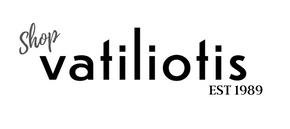Our Partners
Libbey
Since 1818, Libbey has been the vanguard of artistry and innovation in glassmaking. From their roots in Toledo, Ohio, to their place as a worldwide total tabletop leader, they continue to empower chefs, mixologists and home entertainers to craft moments that matter with beautiful and durable tabletop products.
Libbey hails originally from East Cambridge, Massachusetts, home of the New England Glass Company, which was founded in 1818. In 1888, Edward Drummond Libbey, son of the first corporate owner, William, moved the company to Toledo, Ohio.
With abundant natural gas resources, access to high-quality sand and a network of railroad and steamship lines, Northwest Ohio was an ideal location. In 1892, the name was changed to The Libbey Glass Company. Libbey and Toledo were (and still are) a match made in heaven and thus 'The Glass City' was born.
As a vanguard of the glassmaking industry, Libbey is proud to own a number of “firsts”: first to automatically produce lightbulbs, first to develop machine blown glass, first one-piece press and blow stemware. They’ve also brought unique glassmaking processes like marbelique to market.
Technology has always been at the forefront of Libbey's mission, and they continue to lead the way in innovation. In 2015, Libbey became the only maker of luxury glassware in the U.S. with the introduction of Master’s Reserve. Today, their DesignLab in Monterrey, Mexico is raising the standard for excellence, beauty, and functionality.
ONIS / Libbey
ONIS glassware has its roots in the 18th century, with the Royal Dutch Glassworks, based in Leerdam, and the Portuguese Crisal, based in Marinha-Grande. These two companies merged to form Leerdam Crisal Glass, which has been producing high-quality glassware for over two centuries. In recent years, they sold their glass drinkware under the Libbey brand, but in the summer of 2022, they decided to split as a European entity from US-based Libbey Glass LLC to continue making and selling their iconic glassware under their own new, but historic brand name, ONIS.
ONIS glassware is known for its high-quality, unique designs, and iconic ranges such as SPKSY (Speakeasy), 1924, Hobstar, Gats, and many others. These ranges are designed to evoke a sense of sophistication and refinement, making them suitable for various settings, from casual gatherings to formal events. The brand is proud of its heritage and the fact that it is one of the few glassmakers that design, manufacture, and sell their own glassware
Wüsthof
Large parts of Europe were still under the grip of the Napoleonic Wars when Johann Abraham Wüsthof founded his “Shears Factory, Steel and Iron Works” in the world-renowned "City of Blades" in Solingen, Germany in 1814. The company's humble emergence began with the manufacturing of various steel and iron products ranging from forged shears, pocket knives, and daggers to table knives and forks, bread, vegetable, butcher knives and more.
Over the next century – resisting the old saying “jack of all trades, master of none” – the Wüsthof family decided to concentrate on perfecting the essentials: high-quality, forged knives for both home and professional use. One milestone of this time was the introduction of the now-iconic Classic series, which is still in production today and continues to be Wüsthof's best-selling knife series.
200 years later, The company continues to be a family owned business, currently in the 7th generation of the Wusthof family tradition. With their name on the product, quality is indispensable. The family name continues to be the reason for such exceptionally high quality, with every generation striving to out perform the last in terms of excellence and standards. Today, cousins Viola Wüsthof and Harald Wüsthof run what has become one of the most popular, decorated, and progressive knife manufacturers in the world.
In 2023, Wüsthof knives are manufactured by a skilled team of 400 dedicated workers using 40 manufacturing steps from forging to tempering, to grinding and polishing, taking place in two state-of-the-art facilities in Solingen, Germany where that tradition of quality is ensured as old-world craftsmanship meets twenty first century production methods. Knives are still exported from the city of Solingen to more than 80 countries around the world. From Nicosia to Cape Town, and from Tokyo to San Francisco.
Lacor
Lacor Menaje was founded in the Basque Country in 1949 by Marcos Larrañaga. Marcos set about his humble beginnings with a small factory, limited by the knowledge of the times and inadequate resources, making just flan molds and pots.
According to a famous anecdote going down the Larrañaga family, during one of Marcos’s weekend walks he came across an old war plane which he set out to dismantle and collect the aluminium scraps from the wings in order to reuse them. As time passed the company grew bigger, giving way for his sons to enter the market and expand the company to the global level by embarking on a trip to the U.S.
Lacor is the coming together of two families, and the union of two names, Larrañaga and Cortabarria. This family tradition has propelled Lacor forward, from the small factory within which its legacy began to the internationally renowned company it is today. It is said that in any given Spanish home and restaurant, you will find Lacor’s wares. It is a brand trusted by the most discerning chefs and home cooks in Europe’s culinary epicenter.
Today, it is Marcos Larrañaga’s grandchildren who continue the legacy of their family and of the Lacor brand. It is thanks to that tradition of family, craftsmanship and excellence that Lacor still continues to create superior cookware..




